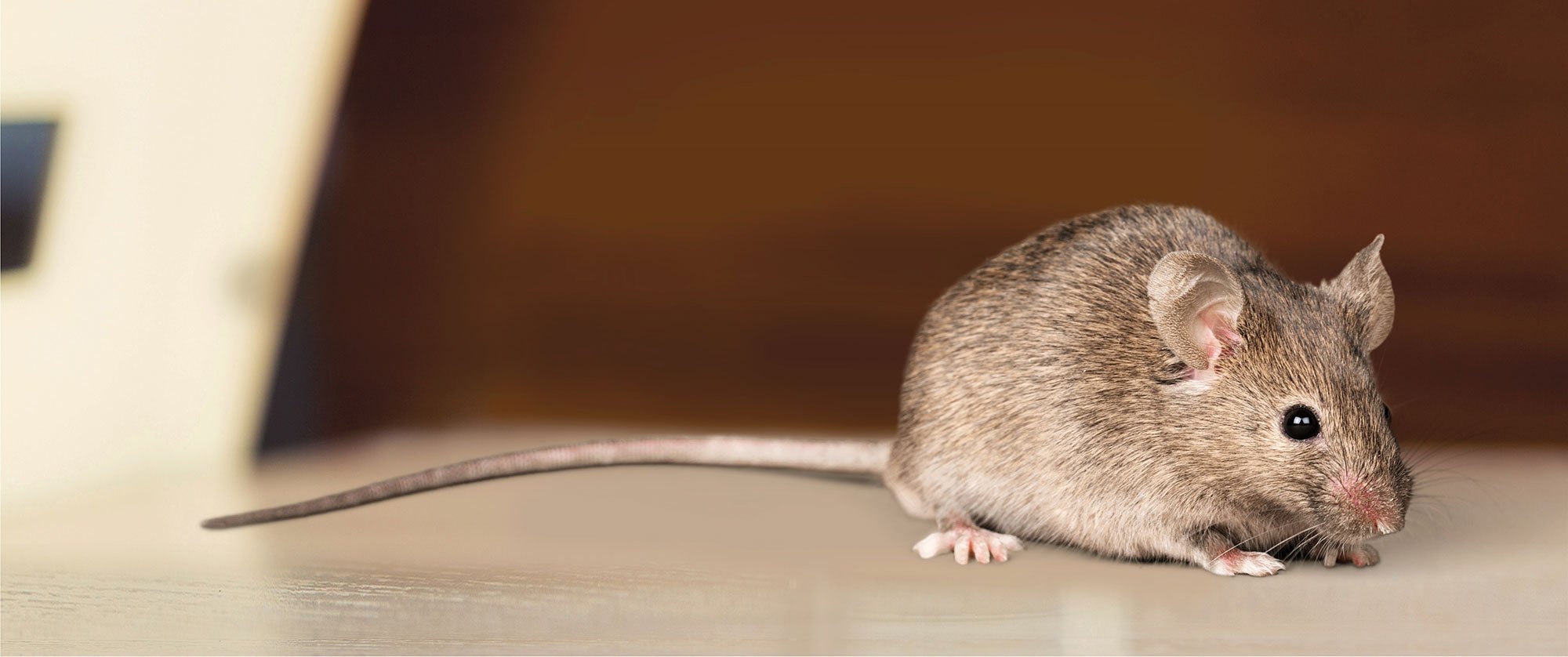
Rats have lived in close proximity to humans for centuries. Identified by a body of 20cm to 30cm and a long tail, they live in or near homes and buildings and often come indoors for warmth in the colder months. Two species, the brown rat and the black rat, are found in Britain; the brown rat is more common and the larger of the two. Brown rats can also survive underground in sewers and transport systems as they like to stay close to ground level and near a water supply. They are a significant threat to public health.
Nesting in soil or soft material, they reproduce very quickly, with females having up to twelve young every five to six weeks throughout the year. A newborn brown rat leaves the nest after 22 days and is able to breed from just two to three months old. Rats have a lifespan of up to 3 years.
Rats eat voraciously to wear down their growing incisor teeth, and will consume an average of 50g of food per day. These rodents are renowned for raiding human food and poultry stores, chewing through cables and pipes, and also for spreading disease such as rabies, Weil’s disease, rat bite fever, foot and mouth disease and salmonella. They also feast on saleable merchandise in commercial premises.
Like mice, rats contaminate more food than they consume and a suspected infestation should be treated immediately by a professional pest controller. Please get in touch with us.
Looking for pest control for rats?
House mice have a reputation for being one of our most common pests in the UK. With short grey or brown fur, a long tail and measuring between 6cm and 10cm from head to body, mice love to find warmth and shelter in buildings where they build nests and breed rapidly. A female mouse can produce up to 10 litters annually, with up to 12 babies in each litter. The baby mice leave the nest only two weeks after birth and are ready to reproduce in less than three months.
With such a prolific breeding cycle, it’s easy to see why house mice can be such a problem, particularly to commercial food outlets. Most mice are active at night and use their highly efficient senses to seek out seeds, berries and shoots. They will nibble through virtually anything with their sharp front teeth, causing significant damage to homes, gnawing cables and pipes, contaminating food stores, and spreading food poisoning.
As most domestic species have become resistant to the blood-thinning rodent killer warfarin, we can employ a combination of commercial rodenticides, baits and traps alongside mouse-proofing any entry points.
If you need pest control for house mice, please get in touch for a quote.
Need help with house mice removal?
Moles are small mammals with cylindrical bodies perfectly shaped for an underground life, with short powerful legs and spade-like feet ideal for digging tunnels. They have tiny ears and eyes, hence poor eyesight, but the snout and tail are very sensitive to touch and help it feel its way to find food such as earthworms or insects.
Moles are solitary animals for most of the year, until they meet to mate with females. The tunnels and resulting molehills created by individual moles can be little more than a garden nuisance, but in greater numbers moles can cause severe instability of the ground and foundations. Professional treatment is necessary to trap and control these pests.
If you have a mole problem on your property, contact us and we can help.
Mole hills an eyesore on your property?
The lively grey tree squirrel is widespread in parks, gardens and forests across the UK, with the rarer (and smaller) red squirrel found in Scotland and some parts of England. The average squirrel measures up to 91cm long, and females give birth to between two and eight young, having several litters each year and a lifespan of 5-10 years.
Like their rodent relatives, squirrels have sharp front teeth which constantly grow, hence their unstoppable nibbling on nuts and seeds to keep the teeth from growing too long. Unfortunately, their ability to scamper at high levels often leads to squirrels accessing domestic loft spaces, where they cause havoc by gnawing through woodwork, wiring, water pipes and insulation material. They can also drown in water tanks, causing a health hazard to the home occupants.
If you have a squirrel problem, talk to Wessex Pest Control.
Squirrel problems?
Read our reviews…




